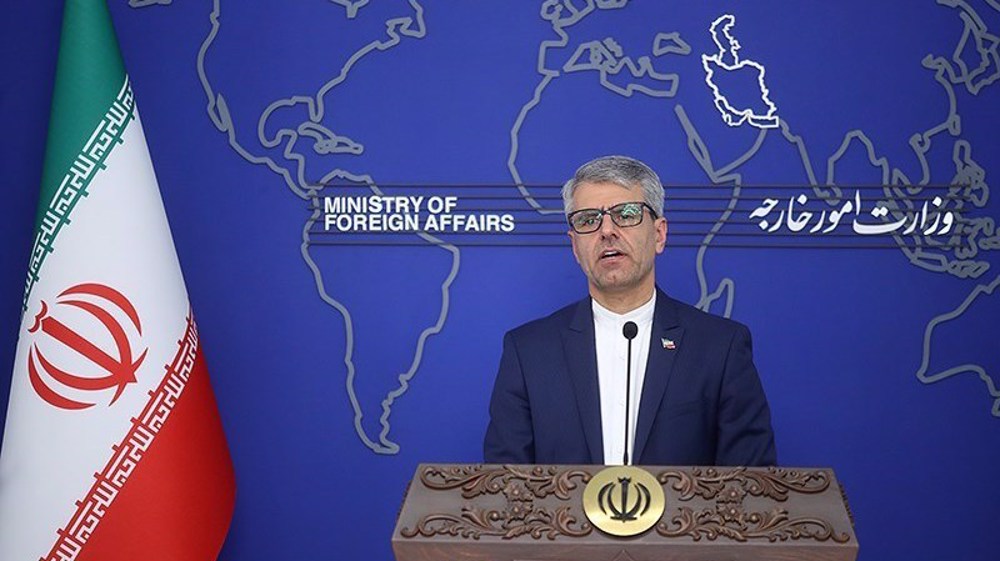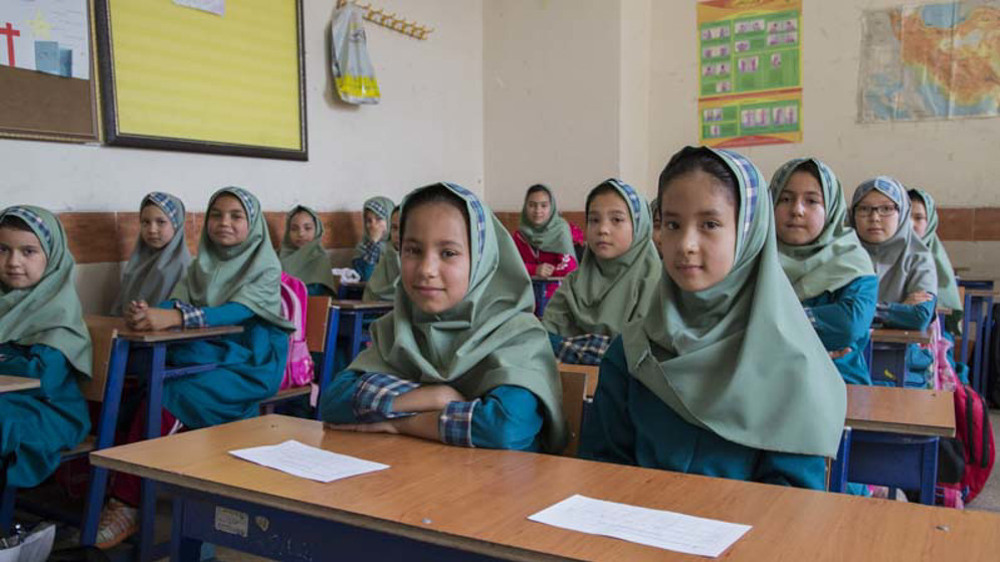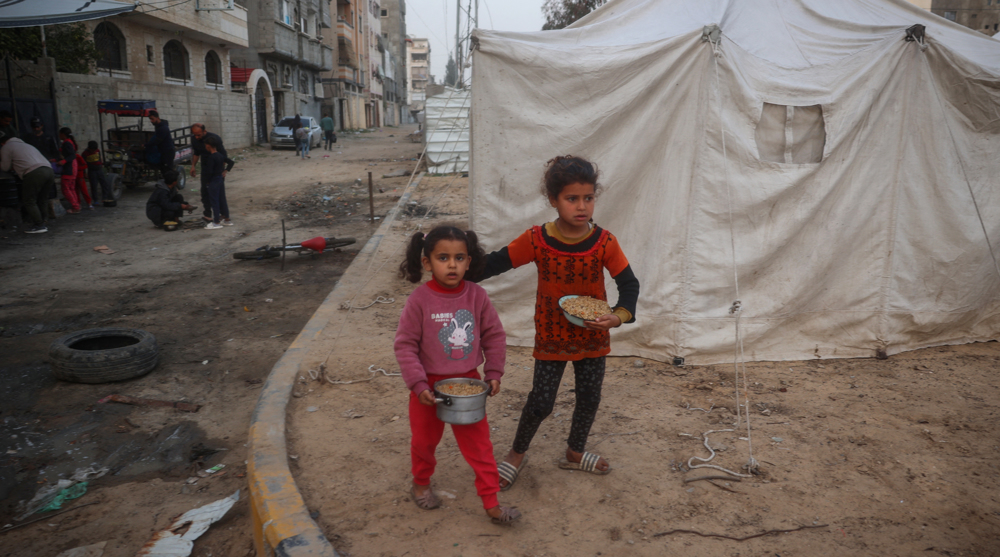'Saudi Arabia has grown so miserable it conspires with Israel against Iran'
Iran’s defense minister says Saudi Arabia, which has a history of teaming up with other regimes against Tehran, has now become so miserable as to ally itself with Israel against the Islamic Republic.
Brigadier General Hossein Dehqan made the remarks in an interview fully broadcast on Arabic-language Al-Manar TV on Monday.
Brig. Gen. Dehqan said that over the 38 years since the establishment of the Islamic Republic, Saudi Arabia has gone out of its way to interfere in regional affairs to oppose Iran.
He said Riyadh spent lavishly to support the former Iraqi regime and the Persian Gulf littoral states against Iran in the eight-year Iraq-Iran war of the 1980s. He also referred to the Saudi intervention in Lebanese politics and said the Saudi rulers offered massive financial and political support to the groups they wanted in power in Lebanon. The Saudis also offered weapons to such groups.
“Then, let’s looks at what they have done in Iraq and Syria today. At what they are doing in Yemen today,” Dehqan said.
Saudi Arabia has been a known sponsor of extremist Wahhabi groups wreaking havoc in the region and beyond. It has also been leading a group of its vassal states in a war on impoverished Yemen since March 2015.
“Today, what we’re seeing is Saudi Arabia has become so miserable. So much so that it has convinced itself to curry favor with [Israeli Prime Minister Benjamin] Netanyahu and incite it (the Israeli regime) against us,” the Iranian defense minister said.
Last Tuesday, the Saudi defense minister, Mohammed bin Salman, claimed in a televised interview that Saudi Arabia would fight what he called Iranian attempts to expand its influence in the region.
“We are a primary target for the Iranian regime,” Mohammed said.
He also accused Iran of seeking to take over Islamic holy sites in Saudi Arabia. “We won’t wait for the battle to be in Saudi Arabia. Instead, we’ll work so that the battle is for them in Iran,” Mohammed said in controversial remarks.
The Iranian defense minister, in his interview with Arabic-language Al-Manar, responded by rejecting the accusation that Iran was after taking over territory.
“We have never been and will never be after occupying any Arab or Muslim country,” Brig. Gen. Dehqan said.
The Yemeni conflict
Responding to a question on how the Yemeni conflict could end, Brig. Gen. Dehqan said it was easy to think of a solution.
“First [should come] a Saudi withdrawal from Yemen. Second, a Saudi refusal to interfere in the affairs of other Islamic countries. Third, accepting the collective security order in the region, and the pullout of extra-regional forces. Fourth, submitting to people’s rule over their own fate.”
An Israeli war on Iran?
Dehqan was asked if the Israeli regime was capable of launching a war on Iran. He said he would respond by asking a question of his own.
“I answer your question with a question. Could Israel successfully end the 33-Day War [on Lebanon]?” he said.
“Did Hezbollah, in a country limited [in terms of resources] as Lebanon [was], have access to massive financial and arms backup? Did Israel, in the 33-Day War, have any means in its inventory not to have used?” he further rhetorically asked.
The 33-day Israeli war on Lebanon saw steadfast resistance by Hezbollah, culminating in a pullout of forces by the Israeli regime.
Once again asked if Israel could attack Iran, Dehqan said, “Do not doubt that it would if it could.”
He also drew attention to the resistance likewise put up by the Hamas movement in the besieged Gaza Strip — which has been the target of three unsuccessful Israeli wars — to make his case.
‘Don’t test Iran’
Dehqan said Iran has enough missiles to heavily target any and all aggressors.
Asked about how many missiles Iran had, he said, “Enough to heavily, seriously, and massively target everyone that is standing against us in a short period of time if, God forbid,” aggression is launched against Iran.
He advised ill-wishers, however, not to venture against Iran.
“We advise our enemies, the Americans and their other, feeble servants, not to test us,” the Iranian defense minister said.
‘A mobile Israel in Daesh’
The Iranian minister said the United States would not be able to effectively fight Daesh because the US itself “has created it for use as a tool.”
“It has in fact created a mobile Israel,” he said.
Dehqan said Israel was best enjoying the situation.
“Israel is... laying back and does not face any threats. Daesh is fighting on its behalf and is providing it with security. Daesh is destroying the capacities of the Muslim world, which can otherwise be used to confront Israel’s acquisitiveness and aggression.”
Daesh is wreaking destruction mostly in Iraq and Syria. Former Israeli Minister for Military Affairs Moshe Ya’alon said last month that the regime had just come under fire from the Takfiri terror group’s positions but said the group had “immediately apologized” for the incident.
Tel Aviv is also widely reported to be providing medical support to the extremists in Syria’s Israeli-occupied Golan Heights.
The regime also carries out repeated forays into Syria against the positions of the Lebanese resistance movement of Hezbollah, which has been helping Damascus fight Daesh and other extremist groups.
Dehqan said the Israeli attacks are meant to signal to the extremist groups that Israel has their back.
Advice for Turkey
Brig. Gen. Dehqan also had some advice for Turkey.
“The Turks backed Daesh in a serious manner at first,” he said. “Their perception was that they could topple the legitimate government of Syrian President Bashar al-Assad so that their favorite government would take over there.”
“Later,” he said, “they automatically lost hope of managing the scene as a result of the resistance that was formed within Syria and the fact that Daesh, al-Nusra, and other armed groups were seriously confronted.”
He said after the failure of the anti-Damascus push, the Turkish government helped bring about a ceasefire across Syria by negotiating on the part of the militants, in cooperation with Iran and Russia.
Ankara is now expected to act as a real guarantor of the agreement, he said, stressing that Ankara-backed groups have violated the ceasefire several times.
“Anyway, we advise the Turks, as we have before, to stand at the Syrian nation’s side, help crush the terrorists, not support them, close up their borders to them, and prevent the transfer of arms, equipment, and recruits to them,” the Iranian defense minister said.
VIDEO | Press TV's news headlines
Report: Trump plans to deport 240,000 Ukrainians from US
Israeli soldiers selling loot stolen from Gaza, Lebanon: Report
Iran rejects 'absurd' UK claim of posing national security threat
VIDEO | Italy's judiciary ignoring penal complaint against Italian government for complicity in Israel's Gaz
Iran envoy urges joint action with Afghanistan to resolve refugees issue
Columbia University students criticize brutality against pro-Palestinian protests
Why any post-war 'plan' for Gaza that ignores Hamas is doomed to fail












 This makes it easy to access the Press TV website
This makes it easy to access the Press TV website